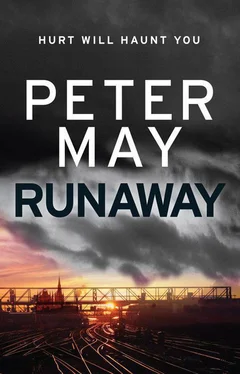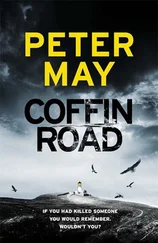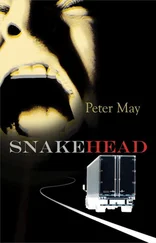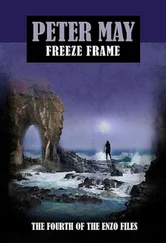‘Oh, I know you took her to that woman’s place. But in the end she couldn’t go through with it. And didn’t tell you because she didn’t want you to think you had to stand by her. Though, in my book, that would have been the decent thing to do. Even though you weren’t Jewish. Anyway, the only person she told was me, and she made me promise not to tell.’
Jack’s world had stopped turning on its axis. He stood paralysed. ‘You mean she had my baby?’
‘She did, Jack. Kid doesn’t know.’ He chuckled. ‘Hardly a kid now, though.’
Jack was almost afraid to ask. ‘And Rachel?’
Maurie nodded towards the envelope. ‘You’ll find an address in the envelope. Go there at three tomorrow. Someone will meet you and tell you all about Rachel.’
The envelope trembled in Jack’s fingers. It felt as if it held his destiny in it. A coda to a life that had never lived up to his hopes for it. An average life, stultifying in its ordinariness, except for those few extraordinary weeks in 1965. The days of their lives, Luke had called them, and that’s what they were.
‘Now go!’ Maurie’s voice echoed out into the hall.
But Jack rounded the table, ignoring the gun.
Maurie panicked. ‘What are you doing?’
Jack leaned over and kissed his forehead. ‘Thank you, Maurie.’ And he saw tears spring into his old friend’s eyes.
‘For fuck’s sake get out of here. I hate farewells.’
The three old men stopped by the door, and looked back at the shrunken figure who had once been their lead singer. But they didn’t see the shrivelled old man about to put a bullet in his head. They saw the plump young singer who had once auditioned for Scottish Opera and had the voice of an angel. Maurie. Their friend. And not one of them could bring himself to say goodbye.
They had reached the alley where Dave forced open the service door before they heard the shot.
A single shot, clear and pure, like Maurie’s voice had been once.
They drove up the hill past suburban semis on their left, and on their right what looked like a city park abandoned to the vagaries of nature behind a wall and fence. Gloomy and neglected. Long grass and tangling briar, dead trees in among the living, stark in their leaflessness.
At first, Ricky had driven Luke’s car through the London traffic with meticulous care born of fear. That Luke had trusted him with it was flattering, but he was terrified of bumps or scrapes, and his confidence on strange roads in a strange car was not high. But after half an hour he had begun to relax a little.
The GPS burbled out its instructions. A woman’s voice that sounded uncannily like Margaret Thatcher. Ricky preferred to rely on the video screen to map out their progress, and the orange arrow that kept them right. His grandfather sat beside him. Silent. A black hole. Lost in thoughts he was not about to share. Ricky dragged his eyes from the road for a moment to look at him.
‘Are you ever going to tell me?’
‘No.’
‘At least tell me what happened to Maurie. I deserve to know that.’
‘You don’t want to know.’
‘I do.’
‘Trust me, Rick, you really don’t.’
Ricky fell back into a semi-sulk. Then, as they reached the top of Brunswick Park Road, he said, ‘Luke offered me a job.’
‘I know.’
‘He told you?’
‘Yes.’ Jack looked at his grandson for the first time. ‘Can you do it?’
Ricky snorted derisively. ‘Of course I can. He said I could stay with him and Jan. He also said I’d have to get my National Insurance sorted out as a freelance, then we could talk about a contract and terms.’
‘It’s a great opportunity, Rick. To get away from home. Break the cycle. See a bit of the world.’
Ricky was indignant. ‘I’ve seen more of the world than I ever wanted to in the last few days!’
Jack smiled. ‘You’re just scratching the surface, son.’
They cruised down the far side of the hill, and the GPS warned them that they were three hundred yards from their destination.
‘Thanks, Grampa,’ Ricky said suddenly.
Jack cocked an eyebrow, distracted from where they were going by his surprise. ‘What for?’
‘For making me go on this trip with you.’
Jack laughed, in spite of himself. ‘That’s not what you were saying three days ago.’
But Ricky’s face was a study of reflection. ‘I never knew it, but it was like I was in hibernation or something. Just waiting to wake up. It’s...’ he glanced across the car again, ‘... it’s been one hell of an experience, Grampa. I just wish you’d tell me what happened last night. I’m a big boy now, honest.’
But Jack was spared from responding by Mrs Thatcher. She said, ‘You have reached your destination.’
And Jack looked around, surprised. They had arrived at a small roundabout at the foot of the hill. He was looking for a house. Number 147. But on their left was open parkland behind a mesh fence, and on their left wrought-iron gates on stone pillars leading to an area of mature trees and manicured lawns. He’d missed the sign, but Ricky hadn’t.
The boy’s voice was hushed. He knew immediately what it meant. ‘New Southgate Cemetery and Crematorium,’ he read.
And Jack’s heart went dead.
He’d had no idea what to expect, or how it might have been to face a Rachel in her mid-sixties all these years later. And maybe somewhere in the darkest recesses of his mind he had known she was already gone. Really gone.
Ricky pulled in to park the Mercedes outside the gate, and they stepped out into the sunshine of this breezy spring afternoon to see a man selling flowers from a cart just inside the cemetery.
Ricky glanced awkwardly at his grandfather. ‘She’s dead?’
Jack nodded. ‘I should have known it was the only way Maurie would have given away her secret.’
Ricky slipped an arm through his. ‘Come on, then. You’d better go and say goodbye to her.’
Once inside, the size and extent of this old cemetery became only too painfully clear to them. It was enormous, with paths turning in concentric circles, linked by spokes, and a chapel half hidden by trees at their centre. Undulating land was divided and subdivided into countless plots. A population of the dead so huge that they had built special white-stone walls to accommodate coffins four deep. From the distance they looked like miniature blocks of flats.
Ricky was bewildered. ‘How will we ever find her?’
But Jack had spotted the tiny sign planted in the grass. White letters on a black background and an arrow pointing the way: Hendon Reform Synagogue Cemetery .
With Ricky on one arm, and his stick in his free hand, he followed the signs round to their left. They passed a grave festooned with colourful plastic butterflies and big-petalled flowers, another hung with a heart. The words at the centre of it read, I love you, Daddy . The names here had their origins in many far-flung places. Italy, Greece, Russia, China. A cosmopolitan community of the dead. No prejudice against immigrants here.
The cemetery of the Hendon Reform Synagogue stood opposite the chapel, a small plot of Jews screened off from the sea of Christian crosses that surrounded them by dilapidated wooden fencing that had collapsed in places.
Jack told Ricky to wait, and went in on his own. A small brick building bore a legend in Hebrew above the door, and one exterior wall was given over to niches where ashes could be stored. Those that were occupied were closed off by grey plaques engraved with gold lettering. In Loving Memory of John Hans Schuck, dearly loved husband and father, 1919–2002.
The plot itself was small, on a downhill slope, gravel with cement paths, and it was filled almost to capacity. Plain marble headstones set above concrete plinths.
Читать дальше












